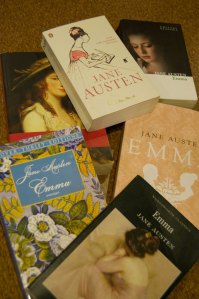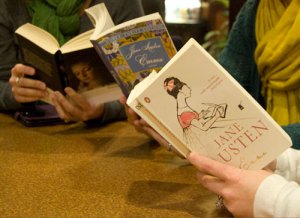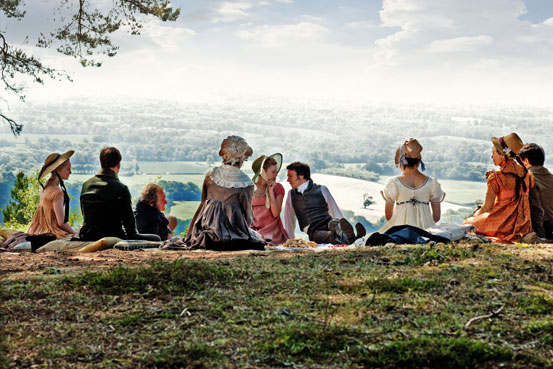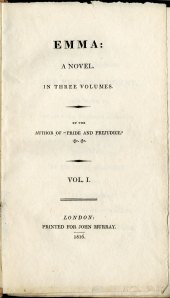Another Jane Austen book, another fun book club discussion night. This month we all read Emma and the answer to the question of “Do you like her?” was a mixed bag.

We had a mixed bag of covers for this book, as well. We also had a couple of people who listened to the audiobook and one who read an e-book version.
Most of us thought Jane Austen had created one of her more unlikeable characters for the heroine, but we agreed that Emma Woodhouse seemed to come around in the end. As far as the book itself, the reactions mainly seemed to fall into two camps: either we really liked the story and would name it among our favorite Jane Austen books, or we just had a hard time getting into the story.
After discussing some of the ridiculous characters in the novel (Mrs. Elton and her request to ride donkeys to the party at Mr. Knightley’s house taking the cake), going through through our list of discussion questions, and choosing some conversation starters from the Table Topics cards (Most thought-provoking: If the book was a dream, what do you think it would signify?), we somehow got on the topic of some of our favorite books from when we were children. There were lots of books we had read in common, and some we sort of remembered but couldn’t recall the titles. If you can help us identify a book at about a fifth or sixth grade reading level with kids who could stop time that had a scene where they stop a dog from attacking them that might have contained some questionable language that a teacher reading it aloud would have skipped over or changed, Sarah would really like to know what it is.
We hope you can join us for our April 12 meeting! We’ll be reading and discussing The Good Earth by Pearl S. Buck (among other subjects, I’m sure) and having a delightful tea party at Sarah’s house. We’ll keep you posted on the details.
Happy reading!



